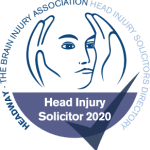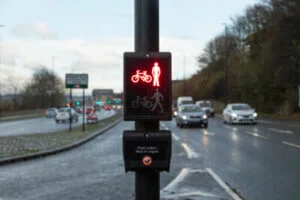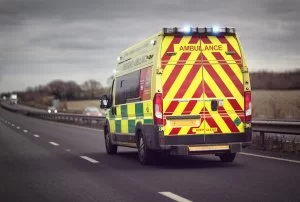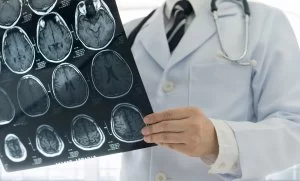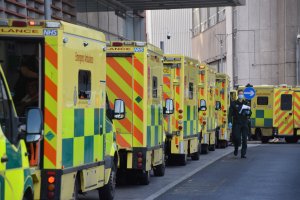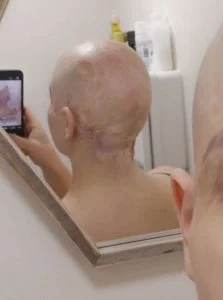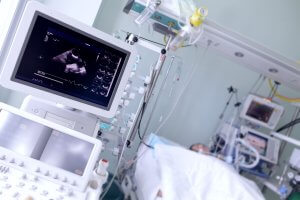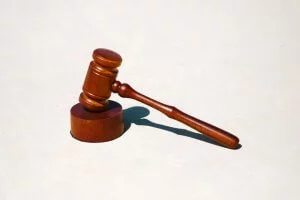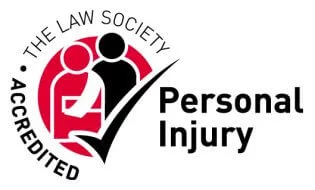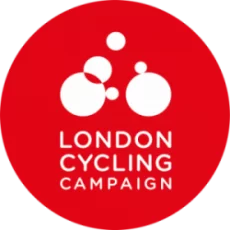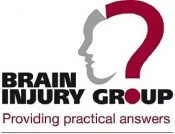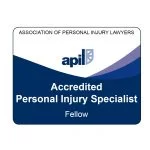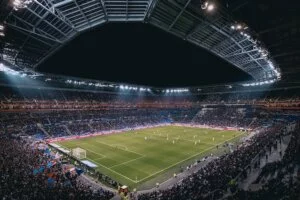Understanding Brain Injuries
“Ben is a real powerhouse and his brain has the size of a planet. He has an unparalleled ability to win cases.”
“Ben Posford is an intellectual powerhouse, loved by his clients and feared by his opponents.”
Scientific understanding of the workings of the brain continues to develop but there is still much that is not well known, and it is still not possible to reliably predict the outcome in many patients who have suffered a head injury.
Practitioners often use the words ‘head injury’ and ‘brain injury‘ interchangeably, but whilst a brain injury will be a serious type of head injury, a head injury will not necessarily involve damage to the brain. For instance, concussion is commonly caused by a blow to the head but without any measurable damage to the brain, and the symptoms can be short-lived with a full recovery. In other cases the patient may suffer headaches and impaired mental function for years without having recognised damage to the brain; a bleed in a blood vessel outside the brain may cause symptoms but not from damage to the brain itself.
A brain injury is usually – but not always – diagnosed by scanning. An MRI scan or CT scan will demonstrate any bleeding within the brain, any lesions, haemorrhages, skull fractures or shift in the structure of the brain tissue.
There are often three phases of a brain injury, where the first is the initial injury, the second represents the damage caused by interrupted oxygen supply in the minutes after the injury, and the third is bleeding and swelling that occurs over the following hours and days.
A head injury can be referred to as ‘open’ or ‘closed’. An open head injury refers to a penetrating injury, where an object such as a weapon enters the skull and damages the brain. These injuries are often fatal but are thankfully quite rare. In a closed injury the skull is not penetrated (although it can be fractured) and the damage is done by violent movement within the skull on impact or through shaking. The brain is a delicate and soft substance, and these violent forces can cause it to be sheared and bruised.
There are conventional measures that indicate the severity of a head injury. Reduced consciousness is measured by a 15 point test called the Glasgow Coma Scale. Anything less than 15 will indicate a degree of impaired consciousness but in many cases that reading will return to normal and there will be no lasting damage. Generally, the lower the score the more serious the injury.
The period of reduced consciousness is at least as important as the degree of reduced consciousness in assessing severity and outcome. It can be a matter of hours in more minor head injury cases and days or weeks in more serious brain injury cases. This does not mean that the patient is in a coma but it does mean that their level of awareness and understanding, and sometimes their physical functioning, are impaired. The period of reduced consciousness is called Post Traumatic Amnesia.
It is very common for people who suffer head injuries in an accident to have no recollection of the accident at all. Some have an even earlier period loss of consciousness, where they cannot recall events before the accident (retrograde amnesia), and this again is seen as an indicator of a more serious injury.
Other early indicators will include nausea and vomiting, impaired speech, balance or vision and headache.
A ‘minor’ head injury will usually resolve naturally within weeks or months, but will still involve unpleasant symptoms such as headaches and dizziness, fatigue and anxiety.
A ‘moderate’ head injury will usually include a period of Post Traumatic Amnesia (PTA) of up to 24 hours. Symptoms will often improve, and may completely resolve, but some patients continue to suffer in the longer term.
A longer period of PTA may be classified as a ‘severe’ or ‘very severe’ head injury and in these cases, the patient is often left with long term disability from problems with brain and sensory function, and sometimes motor function.
Practice head Stephanie Prior is noted for her expertise in birth injury litigation, including cases resulting in serious cognitive injuries.
The team frequently represents claimants in complex cognitive and spinal injury disputes, involving hypertensions, spinal fractures, as well as inadequate treatment of heart and blood diseases.
The team handles a host of complex maternal claims, including cognitive injuries as a result of delayed birth treatments, cerebral palsy, and vaginal mesh litigation.
Sophie Davies is a specialist in major cognitive and lower limb injury claims.
Osbornes covers a spectrum of spinal cord and brain injuries, as well as fatal accidents, spanning spinal cord and brain injuries.
Their team includes bright, hard-working solicitors dedicated to achieving successful outcomes for their clients from partner level to paralegal. Their client care is exceptional.
They are a team who are highly respected in the PI sector.
This is an excellent PI team doing a broad range of PI work.
Osbornes’ ‘highly respected‘ personal injury team is experienced in a range of complex, high-value claims, with notable strength in acting for European clients for whom English is not a first language.
Osbornes’ ‘highly respected‘ personal injury team is experienced in a range of complex, high-value claims
Osbornes’ ‘highly respected‘ personal injury team is experienced in a range of complex, high-value claims.
Rob Aylott is adept at handling sensitive and complex catastrophic injury claims. He offers a particular specialism in amputation claims.
"Osbornes always provides work of excellent quality and the advice is sound."
"The firm has the ability to handle the most sophisticated and complex matters."
"Osbornes is always client-focused and works tirelessly to obtain the best outcomes."
"Rob Aylott is adept at handling sensitive and complex catastrophic injury claims. He offers a particular specialism in amputation claims."
Ben Posford leads the catastrophic injury team and regularly represents claimants in neurological injury and fatal accident claims. He also has a niche specialism in claims involving cauda equina syndrome.
Stuart Kightley regularly handles cases involving brain injuries, fatal accidents, cycling collisions and workplace accidents.
Stephanie Prior is head of the clinical negligence department at Osbornes Law. She acts on a wide range of issues, including claims for brain injuries sustained at birth and delays in diagnosis. She frequently represents clients in fatal claims involving surgical error.
Sophie Davies specialises in brain injury and lower limb amputation cases.
"Sam Collard is recognised for his talent in complex brain and amputation claims, developing strength particularly in quantum issues and sporting injuries and accidents."
'The team deals with multi-million pound, often multifaceted claims, involving such factors as severe brain, psychiatric, gynaecological and spinal injury, major trauma, amputation and fatality.'
"They are a boutique firm with highly experienced partners who are well-respected in the industry."
"The team at Osbornes deals with catastrophic injury claims with the same professionalism as the largest firms, but provides a much more client-focused experience."
"A really first-rate team, well capable of dealing with the most serious and complex injuries."
"This team has carved out an exceptional reputation in catastrophic injury work."
"Osbornes has impressed me with their personal touch for clients whilst offering a first-class handling of catastrophic injury claims. The partners all have vast experience and are highly respected in their field."
"Ben Posford is a pre-eminent solicitor in the field of very high-value catastrophic injury claims."
"Ben Posford is a great tactician, a great negotiator and generally, the man you want on your side when dealing with serious personal injury work."
"Ben Posford is a top-class litigator. He knows everything there is to know about catastrophic injury and major disaster litigation."
"This is a really excellent personal injury team that can be regarded as one of the major players in the London claimant personal injury market."
"Osbornes have managed to recruit a team of outstanding catastrophic injury lawyers who are at the top of the game."
"Ben Posford has his finger on the pulse as one of the leading catastrophic injury lawyers in the country, dealing with some of the highest profile cases."
"They punch well above their weight. The quality of service they provide equals that of any of the larger top-name firms in this area"
A niche firm that punches well above its weight in the catastrophic injury sector, borne out by the quality of work they obtain.
Ben Posford is one of London’s best catastrophic injury lawyers, in my view. He is a real brain injury specialist.
Excellent coverage of personal injury, and traumatic brain injury. There is a real specialism in claimants who do not speak English as a first language.
The group is noted for its expertise in matters relating to cycling injuries, and is the official legal partner of the London Cycling Campaign charity.
"A small but high-powered team, dealing with cases of significant value and complexity."
"An excellent firm which achieves fantastic outcomes for clients."
"Ben Posford is a hugely experienced solicitor who approaches his cases with confidence and realism."
"Osbornes Law have captured the magic of keeping the customer service levels of a smaller firm whilst having all the expertise and power of the biggest firms."
"A superb boutique catastrophic injury firm."
"Really good at dealing with people who have suffered a serious injury."
"Affable and charming with very good client-handling skills."
"superb firm with consummate professionals and a human touch."
Osbornes now has a team of highly experienced personal injury lawyers; particularly strong on high-value quantum cases, workplace accidents and claims involving foreign workers injured in the UK.
The team provides fantastic strength-in-depth for personal injury claims. It is also particularly well placed to service clients from Eastern Europe with specialist native language speakers. From the smallest case to a multimillion-pound spinal injury case, Osbornes has the right staff to manage every claim.
Ben Posford remains pre-eminent in his field with expert understanding of litigating cases of the upmost severity. His experience builds on Stuart Kightley’s running of the firm with recent partner additions of Rob Aylott making a fantastic addition.
A firm going from strength-to strength-which retains its client care whilst being able to offer a full personal injury service.
Beneath Ben Posford’s calm and reassuring presence, which clients love, lies a formidable tactical and legal brain. His experience tells and he gets it right at every stage of the process from arranging the best possible rehabilitation, to ensuring, so far as possible, a polite relationship with those acting for the defendant in order to ensure best and early resolution of the claim.
"Rob Aylott is a top-class litigator who has an unrivalled knowledge of catastrophic personal injury. A ferocious eye for detail means that quantum claims are always maximised and every angle analysed in liability cases."
"Clients say he is very impressive, in terms of both his experience and his management of the personal injury team."
"They have an expanding profile in personal injury and clinical negligence and offer a superb, broad service in accidents abroad, enabled by their recruitment of bilingual legal executives who can guide non-English speakers through complex litigation."
"Solid personal injury practice well equipped to advise on high-value and high-profile claims arising from fatalities and severe head and spinal injuries."
"Offers specialist expertise in cycling-related injury claims."
"Offers specialist expertise in cauda equina syndrome cases."
"An exceptional outfit. They take on difficult cases, fight hard and win."
"Stuart Kightley is an incredibly empathetic solicitor who is very knowledgeable about traumatic brain injury."
"They are an outstanding firm to work with. They are consistently impressive in their work."
"Osbornes often handles claims valued at over £1m, particularly relating to severe brain and spinal cord injuries and niche areas such as cauda equina syndrome and cycling accidents."
"The hard-working, thorough and committed Robert Aylott, who brings significant heavyweight personal injury experience."
"Key team members include the energetic and personable Stuart Kightley who is head of the personal injury department."
"Osbornes has a growing influence and impressive work load and is gaining a reputation for handling complex catastrophic work."
"Catastrophic injury cases head Ben Posford is an excellent practical litigator who offers exceptional service."
"Stuart is also very experienced in advising on fatal accidents and workplace accidents."
"Stephanie Prior... manages a varied caseload, including obstetric claims, child and adult brain injury cases and fatal and non-fatal spinal cord injury cases."
Thank you for the hard work and patience and for being so patient with my constant questions.
"I have found Osbornes to be thorough, clear and understanding from the initial call. They do exactly what they say they will and with passion! I would recommend them to anyone".
Very good efficient service. Would not hesitate to use again.
I will use Osbornes for any future needs.
I don't think I could have asked for anything more. One of the best dealings I've had with the legal profession.
Sam was excellent and very professional in dealing with our claim.
Head of the personal injury department, Stuart Kightley is a first-rate practitioner, wholly focused on getting his client the best outcome in a pragmatic, sensible and consensual manner.
As a real specialist in spinal cord injuries, Ben Posford is always looking at new angles on how to maximise his cases.
Ben Posford is one of the best catastrophic injury lawyers around.
They provide exceptional service, great knowledge and understanding of the law, excellent client care and tactical nous
Ben Posford is 'exceptional and a real expert in the field of catastrophic injury'.
Stuart Kightley is praised for his expertise in catastrophic and fatal claims. Clients say he is very impressive, in terms of both his experience and his management of the personal injury team.
My claim was dealt with efficiently and professionally. Communication was excellent, and timely. Shrewd and sound advice was provided at every stage of the claim from beginning through to completion. On the basis of my personal experience I would strongly recommend Osbornes.
I just wish to thank you for your hard work and successful outcome. I am pleased with the result and would recommend you and your firm to anyone in the future.
Ben Posford … is ‘tactically astute’ and ‘one of the best personal injury solicitors around’.
Ben Posford ‘knows how to maximise the value of the claim for his clients’.
"Ben Posford is singled out for his expertise in high-level catastrophic claims, particularly his handling of devastating brain and spinal injuries"
Client StoriesVIEW ALL
- 26.10.2023
Six-Figure Compensation for Victim of Reckless Scooter Driver
Siobhan McIvor, accredited Personal Injury Solicitor and Partner at Osbornes Law, has settled a case at a Settlement Meeting with...
Read more - 24.10.2023
Six-figure Settlement for Pedestrian Injured at Traffic Lights
Our client was a 68 year old homeless Polish National who was knocked over on a traffic light controlled crossing. He...
Read more - 28.2.2022
6-Figure Settlement for Brain Injuries Caused by Car...
High-speed collision causes catastrophic brain injuries Our Spanish client was the front-seat passenger in a car driven by her husband...
Read more - 9.1.2022
Settlement secured for head injury caused by hammer...
Osbornes Law has secured a £100,000 settlement for her client who suffered serious head injuries after being attacked in prison by...
Read more - 26.10.2021
Examples of Serious Head & Brain Injury Settlements
C–v-N Child pedestrian crossing road knocked over by car when running into road sustaining a traumatic brain injury and...
Read more - 31.8.2021
Client pursuing head injury claim after life changing...
A young woman has told of the moment her head was completely scalped and lost her ear when her hair...
Read more - 2.8.2021
London Tube Sign Causes Head Injury: Case Study
Compensation for Pedestrian Injured by Falling Public Sign Brain Injury Claim after falling tube sign knocks pedestrian unconscious Incident Overview...
Read more - 15.9.2019
Osbornes Settles Brain Injury Case For Six Figure...
Case Overview: Brain Injury in Road Accident Osbornes acted for a Hungarian doctor who sustained a serious brain injury in...
Read more - 13.8.2019
Ground-breaking technology secures multi-million pound damages
Our client sustained near-fatal brain injuries in an accident which was not their fault, but made a remarkable recovery from...
Read more - 19.6.2019
High Court victory for spinal cord injured claimant
Legal Victory for Former Nursery Worker Aileen Cooper Background of the Case Ben Posford at Osbornes Law represented former nursery...
Read more - 25.3.2019
£5m for brain injury caused by car accident
Man in his twenties sustained serious brain in a car accident A man in his twenties who sustained serious injuries...
Read more - 19.6.2013
Head & Brain Injury Case Studies
Man who suffers head injury in car crash receives compensation A man who suffered a serious head injury as a...
Read more - 19.6.2012
Student receives compensation for serious spinal injuries
A student who was knocked down by a car on her way to university received £147,000 in compensation for her serious...
Read more
Insights From our Personal Injury Lawyers VIEW ALL
- 23.5.2019
Do sporting bodies take head injuries seriously enough?
Jan Vertonghen and Christoph Kramer. Both are professional football players who have suffered injuries whilst playing in high-profile matches; both...
Read more - 21.7.2014
Complementary Therapies for Traumatic Brain Injury
Complementary therapies can be extremely effective for those who have experienced serious injury – not as an alternative to serious medical...
Read more
Meet our Head & Brain Injury Solicitors View the whole team
Rob Aylott
Partner
Personal Injury SolicitorsSam Collard
Partner
Personal Injury SolicitorsSophie Davies
Partner
Personal Injury SolicitorsStuart Kightley
Partner
Personal Injury SolicitorsPatricia McCaffrey
Senior Associate
Personal Injury SolicitorsSiobhan McIvor
Partner
Personal Injury SolicitorsView the
whole team

